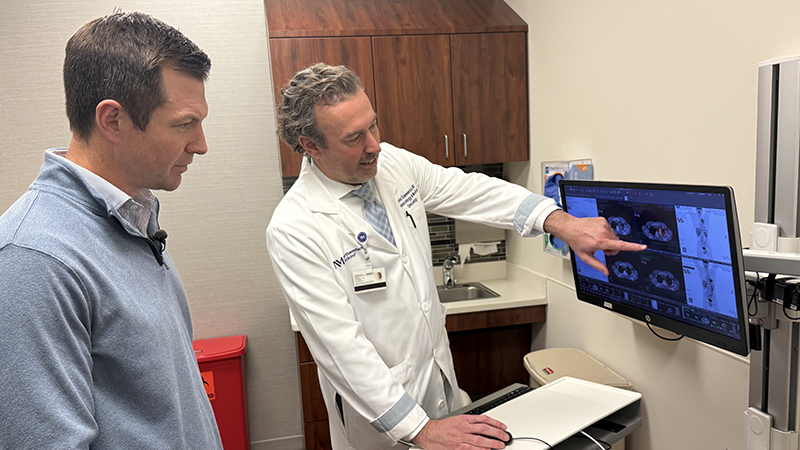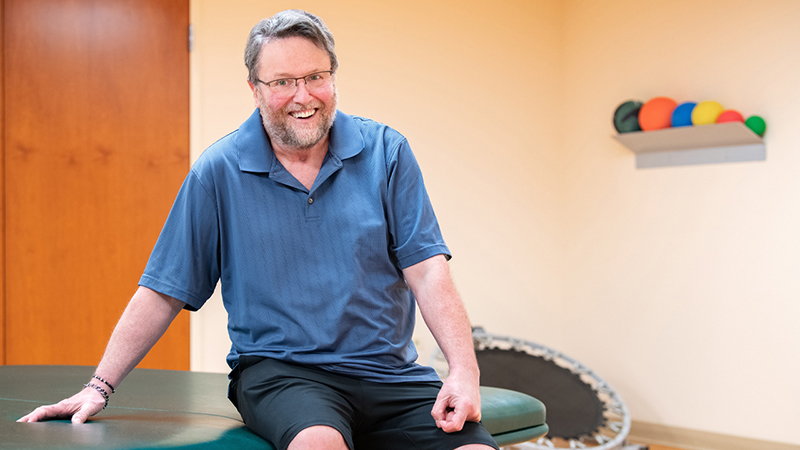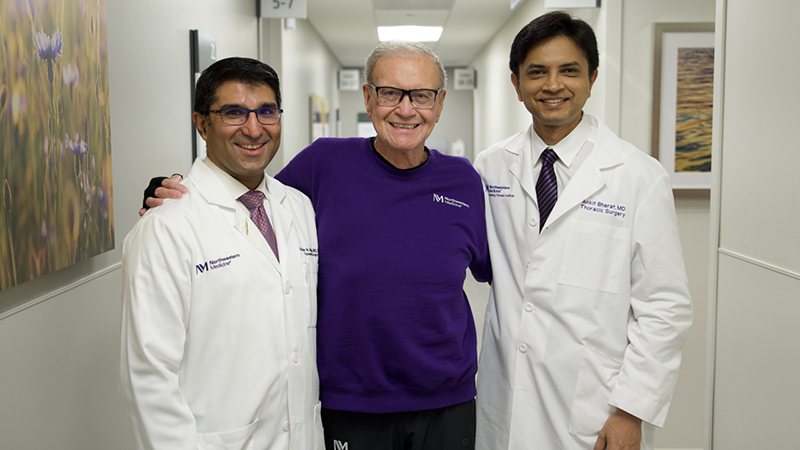Third Time’s the Charm: Paul’s Proton Therapy for Prostate Cancer
Published May 2019
Paul’s Proton Therapy for Prostate Cancer
After discovering blood in his urine, Paul Melchert had an abnormal PSA test, and then a biopsy confirmed he had prostate cancer. Although two different physicians recommended surgery, Paul decided to get a third opinion from Northwestern Medicine Proton Center. He found good things when he least expected to find them.
At the time of his diagnosis, Paul’s friends were also being told to have prostate cancer surgery, and did so without seeking a second opinion. Prostate cancer, which is the most common malignancy in men, forms in the muscular, walnut-sized gland located below the bladder and in front of the rectum. Surgery is commonly recommended to try to remove the cancer if it hasn’t spread outside the prostate gland.
However, because of the location of the prostate, the surgery can affect urinary, bowel and sexual functioning. While it is very common to experience some urine leakage and erectile dysfunction, most men will regain urinary control and see improvement with sexual function within one year after treatment.
“I heard my friends complaining about their side effects, and I thought, ‘This is no way to live,’” explains Paul, who decided to research proton therapy after hearing radio commercials about the treatment.
It’s like ‘Star Wars.’— Paul Melchert
Proton therapy is a noninvasive alternative to surgery for treating prostate cancer. The treatment allows high doses of proton radiation to precisely target just the tumor itself. This minimizes damage to the surrounding tissue, including the bladder and rectum, and reduces the urinary complications and impotence more commonly associated with surgery.
“Proton therapy allows a delicate balance of treating the tumor and preserving healthy tissue by precise targeting that conforms to the shape of the tumor, making it an excellent treatment for prostate cancer,” says Vinai Gondi, MD, radiation oncologist and director of research at Northwestern Medicine Proton Center.
Paul received 44 rounds of treatment, five days a week for nine weeks. It takes approximately one minute to deliver the protons to the tumor, and Paul didn’t experience any side effects. “Proton therapy is unbelievable. It’s like ‘Star Wars.’ My friends regret not getting second opinions,” says Paul.
An extra bonus of seeking care at Northwestern Medicine Proton Center was the long-term friendships he developed with other men receiving similar treatment at the center. “The staff called us the ‘band of brothers.’ We really enjoyed each other’s company, and we developed great friendships. We shared our experiences, fears and concerns. I was so lucky to have this level of support,” shares Paul.
He fondly recalls his graduation day from Northwestern Medicine Proton Center where he marked the end of his treatment by ringing a ceremonious bell and received a gold coin that he still carries with him.“Every member of our staff walks this journey with our patients, and we aim to make it as positive and uplifting an experience as possible,” says Dr. Gondi.
“Northwestern Medicine Proton Center is unlike any other healthcare place I’ve ever experienced. It never felt sad or dreary, and the staff was like a second family to me. I am cancer free (as of my five-year checkup in fall 2018) and everything is back to normal,” says Paul.





